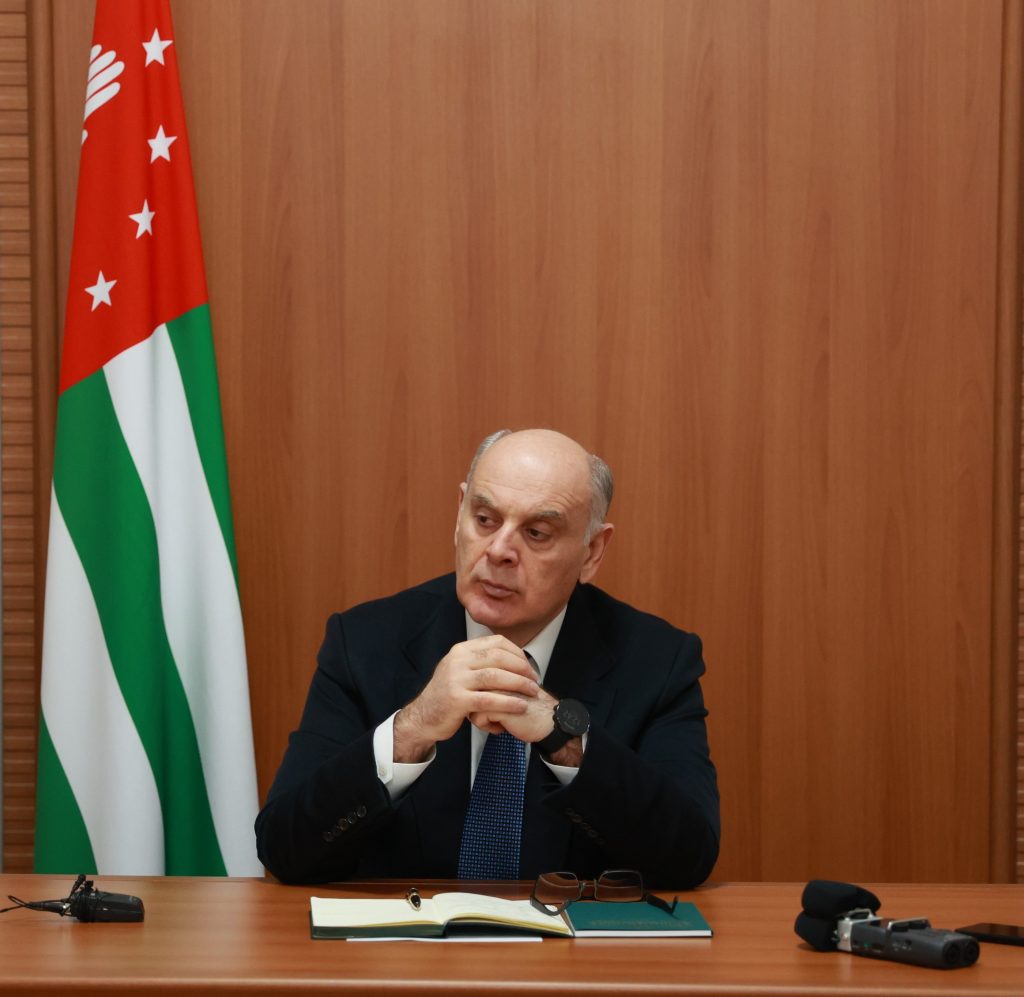Kremlin-backed Abkhaz leader Aslan Bzhania told a local TV station that his recent trip to Moscow mostly focused on the 2022-2025 program for the occupied region’s development, which Russia is to co-finance.
In the interview on November 2, he discussed Russian aid to Abkhazia, electricity shortages in the region and cryptocurrency mining, among other issues.
In Moscow, on October 26-29 Bzhania held meetings with Russian Sports Minister Oleg Matitsin, Transport Minister Vitaly Savelyev, Deputy PM Alexander Novak, Deputy Chief of Staff of the Presidential Executive Office Dmitry Kozak, and Deputy Secretary of the Security Council of Russian Federation, Rashid Nurgaliyev.
Russian assistance
According to Bzhania under the 2022-2025 program, Russia would assist the Abkhaz authorities’ support measures for small and medium-sized businesses and rural households.
Besides, Bzhania said the program envisages increasing the monthly salaries of about 13,000 “public servants” to RUB 40,000 (USD 528) on average by 2025.
He added that negotiations are underway with Kremlin officials to set up a joint Russian-Abkhaz fund for supporting the occupied region’s economy, but refused to elaborate on the details or name potential date of its launch.
Electricity shortage and cryptocurrency mining
Noting the region is suffering from a power shortage, Bzhania said electricity transfer to Abkhazia was one of the key topics of his talks in Moscow.
Recalling that Russia provided the occupied region with electricity free of charge last year, Bzhania warned that Moscow will not be willing to provide the assistance endlessly.
The Abkhaz leader stressed that some 500 million kWh of electricity is being spent on illegal cryptocurrency mining, while kindergartens, hospitals and educational institutions have to be without electricity. The increased consumption also leads to frequent accidents on power lines, according to Bzhania.
Noting that the authorities are working on establishing a tech park for legal cryptocurrency mining, Bzhania vowed to crack down on illegal mining in the meantime.
He said the authorities would also need the support of the region’s residents to curb the mining. “If we want to have electricity at home, then we need help in this matter,” Bzhania stressed, adding he also brought up the issues in Moscow hoping Russia will help.
The Abkhaz leader also stressed the need to “be satisfied with the opportunities that we have,” referring to the electricity generated by Enguri HPP.
Enguri HPP’s 271.5-meter-tall concrete arch dam is located on Tbilisi-controlled territory, while its five generators are on the Abkhaz side, in Gali district. As per a long-standing informal agreement, Tbilisi and Sokhumi have been sharing the electricity generated by the plant. The HPP went offline in early 2021 for several months due to reconstruction work, and the region had to resort to electricity provided by Russia.
Also Read:
- Defying Resignation Demands, Abkhaz ‘Interior Minister’ Returns to Work
- Abkhaz Leader Visits Moscow
- Bzhania Talks Aibga Controversy, Energy, Trade with Tbilisi
This post is also available in: ქართული (Georgian) Русский (Russian)

